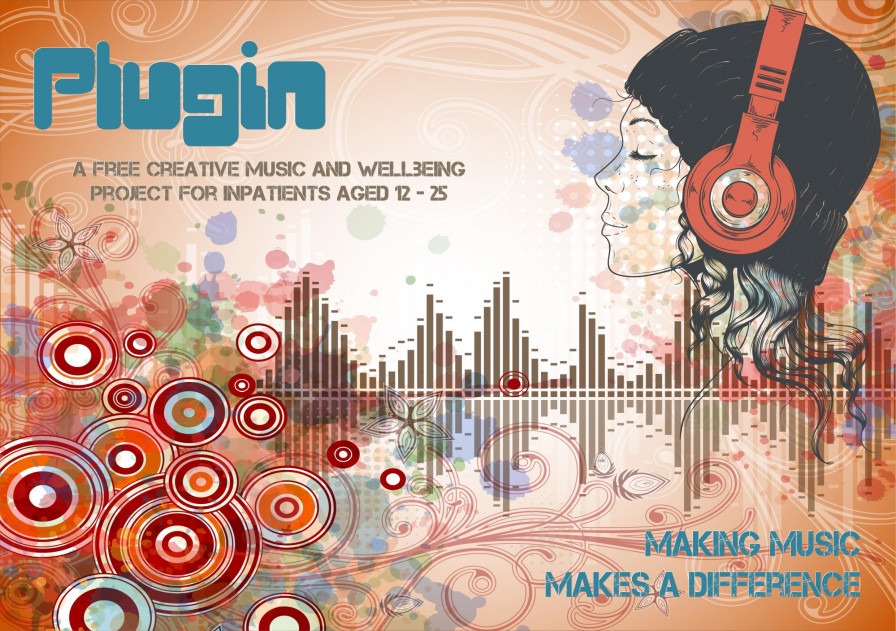A Community Musician's Quest For Quality by James Stanley (Music Leader on Quench Arts' Plugin project)

As musicians, quality is important to us. When it comes to the music that we make, it’s the details that we are proud of. It’s the time we’ve spent crafting a sound until we feel ready to share it. No matter what kind of music we make, we all want to sound good! It sounds simple but we know that sounding good takes time and effort. In fact, a piece of music might not sound good at all in the early stages! Only when we chip away at it does it start to become something we can be proud of.
On the other hand, when using music as a therapeutic tool, taking too much time over a song until it sounds good can be detrimental to the process. We might lose the participant or even lower their confidence and self-esteem. On Quench Arts' Plugin project, I’ve had experience of participants losing interest because the track doesn’t sound good quickly enough. Sometimes, our role as Music Leaders involves using our skills and experience to speed up the process for the participant. These are my tips on how to do this:
Keep up to date with popular genres
We all have our own musical preferences. Participants have the right to their own! If we stay up to date with styles and genres that are currently popular with the kinds of people we’re working with, it’ll help to speed up the process of creating something that our participants can be proud of. Listen to commonalities between songs in these genres. What is the tempo? What are the drum sounds used? What kind of kick/snare/hat patterns are used? What are the chords like? Often there are small things we can do that make a track sound like it belongs in a particular genre. If we can help the participant make music that sounds like the music they listen to then we’ll be able to engage them for longer.
Fill in the space
Use your musical skills to add to the track but your personal skills to know when and where it’s appropriate to do so. Can you add something subtle that will make a participants idea sound better? For example - if they’ve written a great kick and snare pattern, can you add a hat pattern over the top that will help elevate their initial idea? If they’ve written some chords, could you quickly add a complementary bassline that makes it feel more exciting and less basic? Anything that will fill in the space! It’s very rare that we come up with just a simple idea that we feel really proud of. It’s normally when we start adding layers to that idea that we start to see its true potential. We might be able to speed things up for a participant in this way. Certain genres lend themselves well to this. I was working with a participant on some Lo-Fi Hip-Hop style tracks. Before the session I layered in a sample of some vinyl crackle and a sub bass. I didn’t play these to the participant until they’d come up with a few ideas. Then, when we listened back together for the first time, I added them in without saying anything so the whole idea felt full and alive. It boost that participant's confidence enough for them to keep coming up with new ideas. You have to tread a fine line and make sure you don’t take over though.
Don’t be afraid to use loops and samples
I’ve met lots of musicians who feel like using loops and samples is ‘cheating’ and we shouldn’t do it when making music ourselves or with participants. I disagree! Samples and loops are designed to speed up the production process and help producers get closer to a specific ‘sound’ or genre. We’ve already discussed that doing this will help us to engage our audiences so why wouldn’t we use all the tools at our disposal? There are so many options these days that are incredibly high quality. They are perfect for getting people started and making them feel excited about their music making. Most DAWs will have some built in already but I recommend spending some time exploring other alternatives like Splice (https://splice.com) and Arcade (https://output.com/arcade). Remember - quality is important!
Know your tools well
Whether you’re based in a studio with a rack full of outboard gear, hardware synths and software options coming out of your ears, or you’re sat with GarageBand on an iPad - know your tools inside out! Speed is important. Once a participant gets excited they’ll ask for certain sounds, sometimes not knowing the correct terminology for them. You need to be able to decipher that and then know where to find that sound as quickly as possible. Understand how to make vocals sound as good as possible on your setup and be able to achieve it as quickly as possible. Save presets, favourite sounds, make drum racks with useful samples, create an effects chain that you can add to a vocal in one click and forever look for little ways of making tracks sound better quicker. If you do these things, you’ll look like a professional, your participant will trust you and you’ll be able to help them make music they can be proud of.
